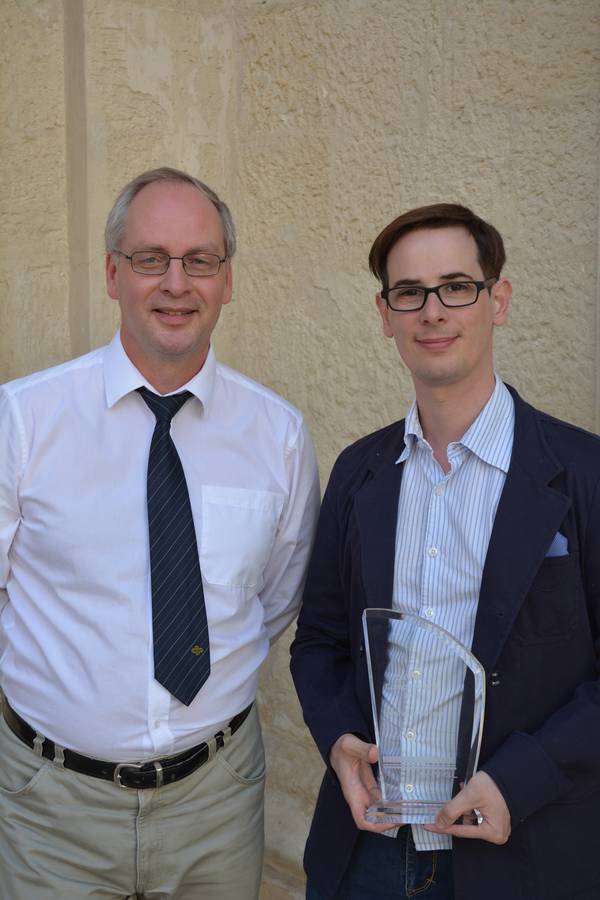Henrique M. Gaspar has been announced as the winner of the DNV GL COMPIT Award 2016. The Brazilian CAD (computational aided design) expert, working at NTNU Ålesund, was honored for his work on merging innovative digital technologies in ship design and operation at the COMPIT Conference, which took place May 9-11 in Lecce, Italy.
The video game industry has spurred the development of cost-effective software and hardware solutions for Virtual Reality and Augmented Reality. Fast graphics processors at affordable prices and a culture of collective development, where software elements are shared and the source code is open for modification, have ensured that these solutions have spread widely. Over the last few years, the maritime industries have taken up these technologies and are putting them to good use in simulating vessel performance.
“Professor Gaspar’s work merges innovative technologies and promotes open, transparent cooperation in the maritime industries,” says COMPIT organizer Volker Bertram from DNV GL. “His work is an interesting contribution to the development of the digital twin, combining state-of-the-art visualization technology with engineering simulation software to mimic ships in sea states.”
A digital twin is a computer model that is able to simulate not only the physical properties (geometry, steel thickness and quality, hull condition etc.), but the performance characteristics, such as motion behavior in maneuvering, power consumption characteristics, strength, vibration and noise properties of an object or machine, for example a ship. Professor Gaspar’s paper “A Web Based Real-Time 3D Simulator for Ship Design Virtual Prototype and Motion Prediction” can be used to assess vessel motion performance in waves in a very intuitive way, but can also be expanded into a variety of other applications, for example in crew training or accident investigation. The system is set up using open-source software, and is thus open to the wider maritime public, and can be easily run on commercial off-the-shelf computers.
COMPIT is the abbreviation for “Computer Applications and Information Technology in the Maritime Industries“. The conference, which took place for the fifteenth time, offered information on advanced IT applications for the lifecycle of ships and offshore structures. Topics such as “Simulation-based Design”, “Asset Management”, “Virtual Reality” and “Big Data”, amongst others, were discussed by the participants. As in previous years, DNV GL was a main sponsor of this event.
This is the ninth time that an outstanding scientist has been presented with the DNV GL COMPIT Award at this prestigious conference. Prof. Gaspar is the first winner to bring the prestigious award to Norway.
Previous winners of the award are:
2007 Jean-David Caprace (Belgium)
2008 Cassiano Marins de Souza (Brazil)
2009 Matthias Schneider / Thomas Glotzbach (Germany)
2010 ---
2011 Denis Morais (Canada)
2012 Rachel Pawling (UK)
2013 Herbert Koelman (NL)
2014 Marcus Bole (UK)
2015 Tatsuo Nishikawa (Japan)
2016 Henrique M. Gaspar (Norway)



